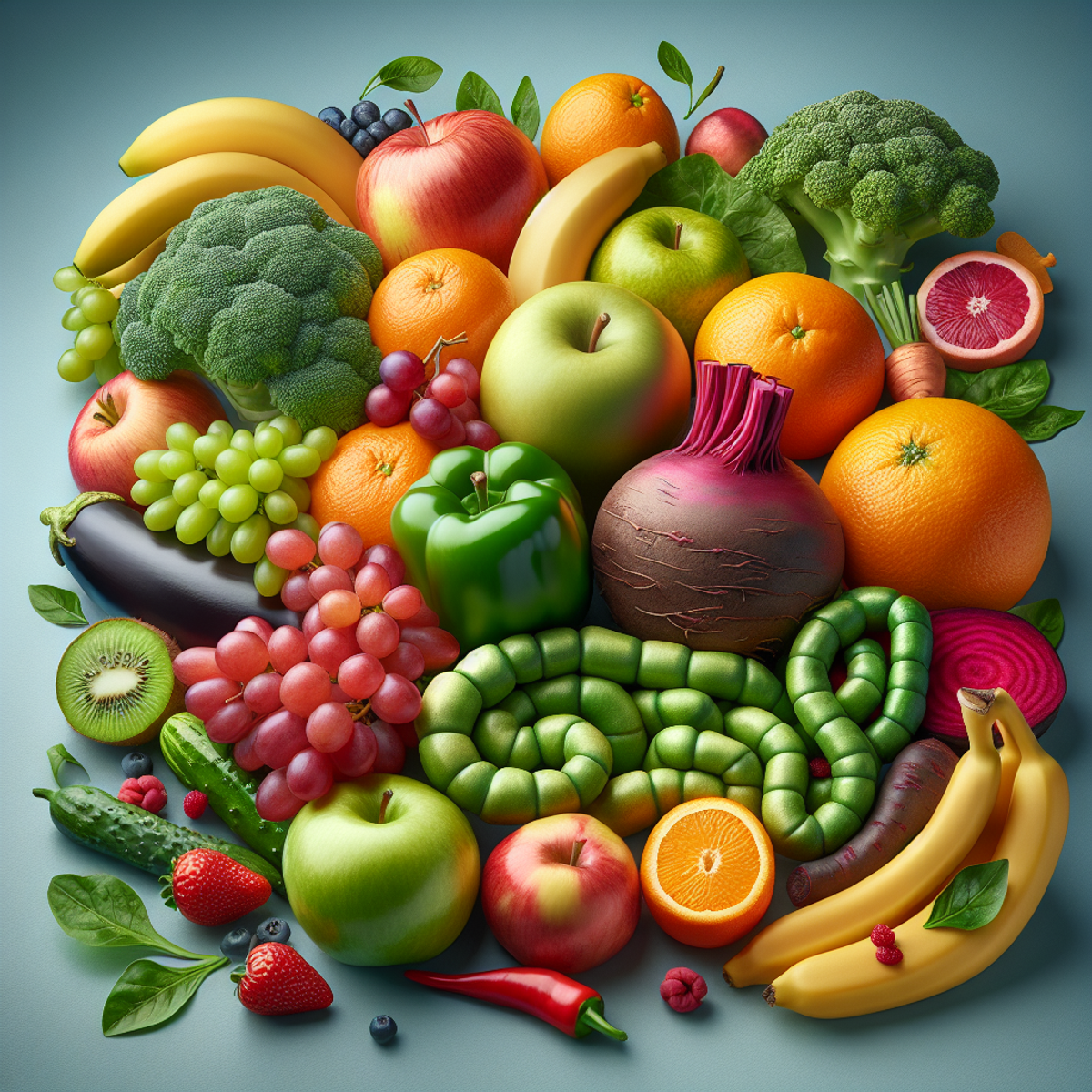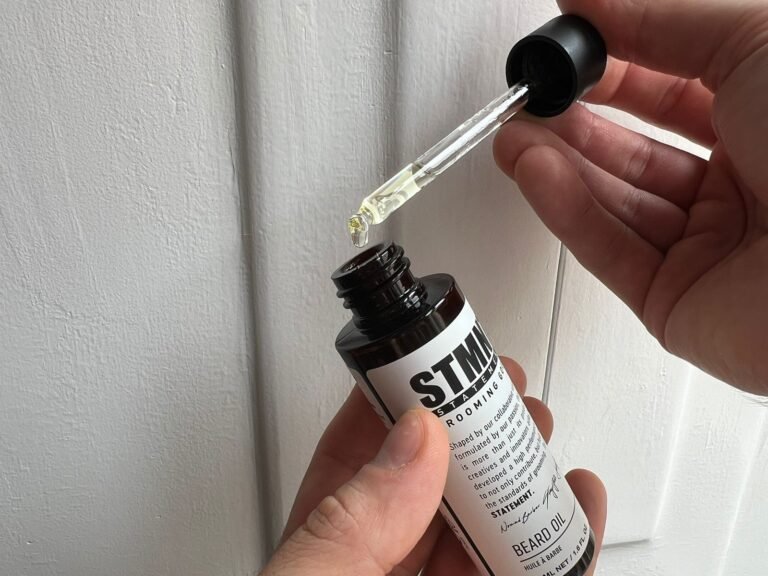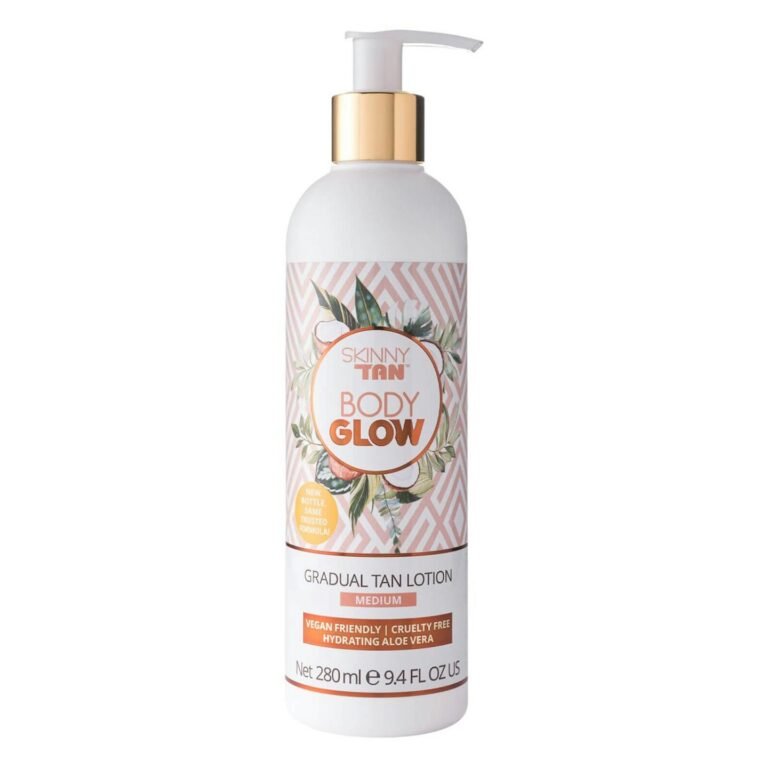Heal Your Gut Naturally: Essential Foods to Include in Your Diet

Introduction
Gut health is crucial for overall well-being, and your diet plays a significant role in maintaining a healthy gut microbiome. The trillions of bacteria residing in your gut have a profound impact on digestion, nutrient absorption, immune function, and even mental health. By nourishing your gut with the right foods, you can support its optimal functioning and promote healing naturally.
But where do you start? In this article, we will explore the essential foods that can help heal your gut naturally. Whether you are struggling with digestive issues or simply want to enhance your gut health, incorporating these foods into your diet can make a significant difference.
Are you ready to discover the power of nutrition in healing your gut? Let’s dive in!
“The food you eat can be either the safest and most powerful form of medicine or the slowest form of poison.” – Ann Wigmore
1. Probiotic Foods for a Healthy Gut
Probiotic foods are rich in live beneficial bacteria that can improve the balance of microorganisms in your gut. These foods have been shown to enhance gut health by promoting digestion, supporting immune function, and reducing inflammation. Incorporating probiotic-rich foods into your diet can help maintain a healthy gut microbiome.
Here are some specific probiotic foods that you can include in your daily meals:
- Sauerkraut: This fermented cabbage dish is packed with Lactobacillus bacteria, which can help improve digestion and promote a healthy gut. Look for unpasteurized sauerkraut to ensure that it contains live cultures.
- Cottage Cheese: Cottage cheese contains Lactobacillus and Bifidobacterium strains, which are known to support gut health. It is also a good source of protein and calcium.
- Yogurt with Live Cultures: Yogurt is one of the most well-known probiotic foods. Look for yogurt that contains live cultures such as Lactobacillus acidophilus and Bifidobacterium lactis. These strains can help restore the balance of bacteria in your gut.
- Kimchi: This traditional Korean side dish is made from fermented vegetables, typically cabbage and radishes. Kimchi is rich in lactic acid bacteria, which can promote gut health and provide immune-boosting benefits.
- Kombucha: Kombucha is a fermented tea beverage that is naturally carbonated. It contains a variety of probiotic strains and beneficial compounds like antioxidants and organic acids. Incorporating kombucha into your diet can support gut health and improve digestion.
To incorporate these probiotic foods into your diet, consider the following tips:
- Start with small servings: If you’re new to probiotic-rich foods, start with small portions to allow your body to adjust.
- Choose quality products: Look for organic or locally sourced options that don’t contain added sugars or artificial ingredients.
- Experiment with flavors: Probiotic foods come in a variety of flavors and textures. Try different brands and types to find those that you enjoy the most.
- Incorporate them into meals: Use sauerkraut as a topping for salads or sandwiches, add cottage cheese to smoothies, enjoy yogurt with fresh fruit, include kimchi in stir-fries, and sip on kombucha as a refreshing beverage.
Remember that consistency is key when it comes to reaping the benefits of probiotic foods. Aim to include them in your diet regularly to support a healthy gut microbiome.
By incorporating these probiotic-rich foods into your daily routine, you can take a proactive approach to improving your gut health naturally. For more information on probiotics and their benefits, consider checking out resources like those provided by the Cleveland Clinic.
2. Prebiotic-Rich Foods for Nourishing Your Gut Microbes
Prebiotic-rich foods are essential for supporting a diverse and thriving gut microbiota. These foods contain fibers that our bodies can’t digest but provide nourishment for the beneficial bacteria in our gut. By helping these good bacteria grow, prebiotics promote a healthy balance in the gut microbiome and support optimal digestion.
Why Prebiotic-Rich Foods Matter
A healthy gut is home to trillions of microorganisms, including bacteria, fungi, and viruses. This complex community of microbes, known as the gut microbiota, plays a crucial role in our overall health, from supporting digestion to regulating our immune system.
When it comes to nourishing our gut microbiota, prebiotics are key. These indigestible fibers act as fuel for the beneficial bacteria in our gut, allowing them to thrive and carry out their important functions.
Top Prebiotic-Rich Foods to Include in Your Diet
There is a wide variety of vegetables and fruits that are excellent sources of prebiotic fibers. Some examples include:
1. Artichokes
Artichokes are not only delicious but also packed with prebiotic goodness. They contain a type of fiber called inulin, which serves as fuel for the beneficial bacteria in our gut. In fact, artichokes have one of the highest concentrations of inulin among all vegetables.
2. Bananas
Bananas are not only a convenient and portable snack but also an excellent source of prebiotics. They contain resistant starch, which passes through the digestive system intact until it reaches the colon, where it is fermented by the gut bacteria.
3. Garlic
Garlic not only adds flavor to dishes but also provides prebiotic benefits. It contains a compound called fructooligosaccharides (FOS), which acts as a prebiotic by stimulating the growth of beneficial bacteria in the gut.
4. Onions
Onions are another great source of prebiotics. They contain FOS as well as other types of prebiotic fibers like inulin. Including onions in your meals can help promote a healthy gut microbiome.
How to Incorporate Prebiotic-Rich Foods into Your Diet
Incorporating these prebiotic-rich foods into your diet doesn’t have to be complicated. Here are some tips on how to maximize their nutritional benefits for your gut:
- Eat them raw or lightly cooked: Cooking can break down some of the prebiotic fibers, so consuming these foods raw or lightly cooked can help preserve their prebiotic properties.
- Pair them with probiotic foods: Combining prebiotic-rich foods with probiotic foods can have a synergistic effect on gut health. For example, enjoying sauerkraut with your artichoke salad or adding sliced bananas to your yogurt can provide a double dose of gut-friendly goodness.
- Include them in a variety of dishes: Get creative and find different ways to incorporate these prebiotic-rich foods into your meals. Add sautéed onions and garlic to stir-fries, toss artichoke hearts into
Fiber-Rich Foods for Maintaining Gut Regularity
Fiber is an essential component of a healthy diet. It plays a crucial role in maintaining gut regularity and supporting overall digestive health. Incorporating a variety of foods high in fiber into your meals every day can help maintain a balanced and diverse gut microbiome, as well as promote optimal digestion.
The Importance of Dietary Fiber for Digestive Health
Dietary fiber is vital for keeping your gut healthy and supporting good digestion. Here’s why it matters:
- Preventing Constipation: Fiber adds bulk to your stool, making it easier to pass through your digestive tract. This helps prevent constipation and keeps things moving smoothly.
- Promoting Regular Bowel Movements: By speeding up the transit time of food through your intestines, fiber helps regulate bowel movements and prevent issues like diarrhea or sluggishness.
- Feeding Good Gut Bacteria: Certain types of fiber act as prebiotics, which are like food for the beneficial bacteria in your gut. These bacteria play a key role in maintaining gut health and supporting immune function.
A Variety of Fiber-Rich Foods to Choose From
There are numerous options when it comes to foods that are high in fiber. Each type offers its own set of benefits for gut health. Here are some examples:
Vegetables
- Leafy greens, broccoli, Brussels sprouts, carrots, and sweet potatoes are excellent sources of dietary fiber.
- They can be enjoyed raw in salads, steamed as side dishes, or roasted for added flavor and texture.
Fruits
- Berries, apples, pears, and oranges are rich in dietary fiber.
- They make for wholesome snacks on their own or can be incorporated into smoothies and fruit salads.
Whole Grains
- Oats, quinoa, brown rice, and whole grain bread provide a healthy dose of fiber.
- Starting your day with a nourishing bowl of oatmeal or swapping refined grains for whole grain alternatives in your favorite recipes are great ways to include them in your diet.
Legumes
- Beans, lentils, chickpeas, and split peas are excellent sources of both soluble and insoluble fiber.
- They can be added to soups, stews, salads, or homemade veggie burgers for a hearty and nutritious boost.
Tips for Adding Fiber-Rich Ingredients to Your Meals and Snacks
Incorporating fiber-rich foods into your daily meals doesn’t have to be boring. Here are some creative ideas to get you started:
- Make Colorful Salads: Create vibrant salads using a mix of leafy greens, colorful vegetables, and fresh fruits. This not only adds fiber but also provides a variety of nutrients and flavors.
- Stir-Fry Fiber-Packed Veggies: Prepare hearty vegetable stir-fries with an assortment of fiber-packed veggies like broccoli, bell peppers, and snap peas. Pair it with lean protein for a complete meal.
- Blend Nutrient-Packed Smoothies: Enjoy nourishing smoothie bowls featuring blended fruits, leafy greens (such as spinach or kale), and chia seeds. These ingredients are all high in fiber and make for a refreshing snack or breakfast option.
- Get Creative with Oats: Experiment with
4. The Gut-Unfriendly Culprits: Foods to Avoid for Optimal Gut Health
Consuming highly processed, artificial, sugary, and chemically-laden foods can have detrimental effects on your gut health. These gut-unfriendly culprits can disrupt the balance of your gut microbiome and contribute to intestinal inflammation. To maintain optimal gut health, it’s important to be aware of these foods and take steps to reduce their intake.
Here are some practical tips to help you minimize your consumption of these gut-disrupting culprits:
- Limit ultra-processed foods: Ultra-processed foods are typically high in added sugars, unhealthy fats, and additives. Examples include packaged snacks, sugary cereals, fast food, and ready-to-eat meals. Opt for whole, unprocessed foods whenever possible.
- Avoid artificial foods: Artificial sweeteners, flavors, and colors can negatively impact the gut microbiome and cause digestive discomfort. Read food labels carefully and choose natural alternatives instead.
- Reduce added sugar: Excessive sugar consumption can lead to imbalances in the gut microbiota and promote the growth of harmful bacteria. Be mindful of hidden sugars in processed foods such as soda, candy, baked goods, and even some savory products like sauces and condiments.
- Minimize preservatives: Many processed foods contain preservatives to prolong shelf life. These additives can disrupt the gut microbiome and contribute to inflammation. Opt for fresh or minimally processed alternatives whenever possible.
- Avoid artificial additives: Additives such as artificial emulsifiers, stabilizers, and thickeners are commonly found in processed foods. These substances can disrupt the gut barrier function and lead to intestinal inflammation. Choose whole foods that don’t require these additives.
It’s important to note that a poor diet can have long-term consequences for your gut health. Chronic consumption of these gut-unfriendly culprits can increase the risk of developing chronic diseases such as obesity, type 2 diabetes, and inflammatory bowel disease.
By being mindful of your food choices and making small changes to your diet, you can take steps towards optimizing your gut health. Focus on nourishing your body with whole, unprocessed foods and avoiding those that may disrupt the delicate balance of your gut microbiome.
Remember, every little change counts. Start by gradually reducing your intake of highly processed and artificial foods, and replace them with nourishing alternatives. Your gut will thank you for it!
Lifestyle Factors for a Holistic Gut Healing Approach
Aside from diet, there are other crucial lifestyle factors to consider for supporting optimal gut function. Taking a holistic approach to gut healing involves addressing these key areas: stress management, physical activity, and hydration.
The Bidirectional Relationship between Stress and the Gut
Stress can have a profound impact on gut health. The gut and the brain communicate bidirectionally through the gut-brain axis, which means that what happens in the gut can affect our emotions and vice versa. Chronic stress can disrupt the balance of the gut microbiota, leading to inflammation and impaired gut function.
To support a healthy gut in the face of stress, it’s important to incorporate stress management strategies into your daily routine. Here are some effective techniques:
- Meditation: Practicing mindfulness meditation has been shown to reduce stress levels and improve gut health. Take a few minutes each day to sit quietly, focus on your breath, and let go of any tension or worries.
- Yoga: Engaging in gentle yoga poses can help relax both the body and mind. Certain yoga postures, such as forward bends and twists, can also stimulate digestion and relieve gastrointestinal discomfort.
- Deep breathing exercises: Deep breathing activates the parasympathetic nervous system, which promotes relaxation and helps counteract the effects of chronic stress on the gut.
- Regular exercise: Physical activity not only helps manage stress but also supports overall gut health. Aim for at least 30 minutes of moderate-intensity exercise most days of the week.
The Link between Physical Activity Levels and a Healthy Gut
Physical activity plays a crucial role in maintaining a healthy gut. Regular exercise has been shown to increase microbial diversity in the gut, which is associated with improved overall health. Moderate-intensity exercises offer particular benefits for gut health:
- Walking: Walking is a simple yet effective form of exercise that can be easily incorporated into your daily routine. Aim for at least 30 minutes of brisk walking each day to promote a healthy gut.
- Cycling: Whether you prefer outdoor cycling or using a stationary bike, cycling is an excellent low-impact exercise that can support gut health. Consider adding it to your fitness regimen.
- Swimming: Swimming is a whole-body workout that is gentle on the joints. It can help relieve stress, improve digestion, and promote a healthy gut.
Remember, consistency is key when it comes to physical activity. Find activities you enjoy and make them a regular part of your routine for optimal gut health.
The Role of Adequate Hydration in Maintaining Gut Health
Hydration is essential for maintaining proper digestive motility and mucosal integrity in the gut. Here are some practical tips to stay hydrated throughout the day:
- Drink water regularly: Make it a habit to drink water consistently throughout the day. Carry a reusable water bottle with you as a reminder to stay hydrated.
- Infuse with flavor: If plain water doesn’t excite you, infuse it with slices of lemon, cucumber, or fresh herbs like mint or basil for added flavor.
- Consume hydrating foods: Incorporate hydrating foods into your diet, such as watermelon, cucumbers, oranges, and leafy greens. These foods contribute to your overall hydration levels.
- Limit dehydrating substances: Minimize your intake of dehydrating substances like alcohol and caffeine as they can hinder hydration.
By prioritizing stress management, engaging in moderate-intensity exercises, and staying adequately hydrated, you can foster a holistic approach to gut healing alongside dietary interventions.
Remember, it’s important to consult with a healthcare professional or registered dietitian for personalized advice on healing your gut issues. They can provide tailored recommendations based on your unique needs and circumstances.
Nurturing Your Gut Barrier with Collagen-Rich Nutrition
Collagen, a structural protein, plays a vital role in maintaining the integrity of the gut epithelium, the protective barrier lining our digestive tract. When this barrier is compromised, it can lead to various digestive issues and even contribute to systemic inflammation. Therefore, nurturing your gut barrier with collagen-rich nutrition is an essential aspect of promoting gut health and overall wellness.
The Importance of Collagen for Gut Epithelial Integrity
Collagen acts as a glue that holds the cells in the gut lining together, providing strength and elasticity to the intestinal barrier. It forms a protective layer that prevents harmful substances from entering the bloodstream while allowing necessary nutrients to be absorbed properly. However, factors such as aging and poor dietary choices can deplete collagen levels in the body, compromising the integrity of the gut epithelium.
Specific Collagen-Rich Foods for Gut Healing
To support your gut health, incorporating collagen-rich foods into your diet can be beneficial:
- Bone Broth: Bone broth is a traditional remedy known for its rich collagen content. It is made by simmering animal bones (such as chicken or beef) along with vegetables and herbs. The slow cooking process extracts collagen and other beneficial compounds, resulting in a nourishing broth that supports gut healing.
- Salmon Skin: Salmon skin is an often overlooked part of the fish that contains a significant amount of collagen. Grilling or baking salmon with the skin intact not only adds flavor but also provides an additional source of collagen for supporting gut health.
Supporting Gut Barrier Function Through Other Strategies
In addition to incorporating collagen-rich foods into your diet, there are other strategies you can adopt to support a healthy gut barrier function:
- Adequate Protein Intake: Ensuring sufficient protein intake is important for maintaining optimal collagen production in the body. Include high-quality sources of protein such as lean meats, poultry, fish, eggs, and plant-based protein options like legumes and tofu.
- Avoiding Gut-Damaging Medications: Certain medications, such as nonsteroidal anti-inflammatory drugs (NSAIDs) and proton pump inhibitors (PPIs), can disrupt the gut barrier and contribute to digestive issues. If possible, discuss alternative options with your healthcare provider to minimize their impact on gut health.
Seeking Personalized Advice
While incorporating collagen-rich foods and adopting strategies to support gut barrier function can be beneficial for many individuals, it’s important to note that everyone’s gut health needs are unique. Consulting with a healthcare professional or registered dietitian who specializes in gut health can provide personalized guidance tailored to your specific needs and goals. They can help you develop an individualized approach to healing your gut naturally through nutrition and lifestyle modifications.
Remember, nourishing your gut barrier with collagen-rich nutrition is just one piece of the puzzle when it comes to healing your gut naturally. By combining this with other essential foods, stress management techniques, physical activity, and hydration, you can take a holistic approach towards achieving optimal gut health and overall well-being.
Conclusion
Healing your gut naturally is possible by adding important foods to your daily meals. Nutrition plays a significant role in restoring gut health. By focusing on foods that promote gut healing, you can achieve long-term gut wellness and better overall health.
Here are the main points to remember:
- Probiotic-rich foods like sauerkraut, cottage cheese, yogurt with live cultures, kimchi, and kombucha introduce beneficial bacteria to your gut, promoting a healthy gut microbiome.
- Prebiotic-rich foods such as vegetables, fruits, and artichokes nourish the existing good bacteria in your gut, supporting a diverse and thriving gut microbiota.
- Fiber-rich foods like vegetables, fruits, whole grains, and legumes help maintain gut regularity and promote a healthy digestive system.
- It’s important to avoid highly processed, artificial, sugary, and chemical-laden foods that disrupt the balance of your gut microbiome and contribute to intestinal inflammation.
- Stress management through techniques like meditation or yoga and engaging in moderate-intensity exercise can support optimal gut function.
- Staying adequately hydrated throughout the day helps maintain proper digestive motility and mucosal integrity.
Remember that healing your gut is a personal journey. If you have specific gut issues or concerns, it’s always best to consult with a healthcare professional or registered dietitian for personalized advice.
Incorporating these essential foods into your diet is a powerful step towards healing your gut naturally. Start small by making simple swaps and gradually increase your intake of these nourishing foods. Your gut will thank you for it!
So take control of your gut health now. Embrace the healing power of nutrition and make these essential foods a part of your daily routine.









